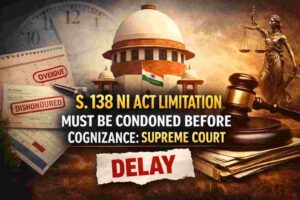Compulsory licensing means the government allows someone other than the breeder to produce and sell a registered plant variety without the breeder’s consent. Under the PPVFR Act, 2001, this ensures seeds remain available to farmers at fair prices while protecting public interest and food security.
The Protection of Plant Varieties and Farmers’ Rights (PPVFR) Act, 2001, aims to protect the rights of plant breeders and farmers by providing exclusive rights over the use and sale of registered plant varieties.
However, the Act also includes provisions for granting compulsory licenses under certain circumstances, ensuring public access to seeds and propagating material of plant varieties.
Compulsory licensing is a mechanism to balance private breeders’ rights with the public interest. Chapter VII of the Act outlines the rules governing the grant, duration, and conditions of compulsory licenses, ensuring fair availability and pricing of seeds for the general public.
Also Read: Remedies Against Infringement of Plant Varieties and Farmers’ Rights
Provisions Relating to Compulsory Licensing
#1 Power to Grant Compulsory Licenses (Section 47):
Section 47 of the PPVFR Act empowers the Authority to grant compulsory licenses after the expiration of three years from the date of issue of a certificate of registration of a plant variety.
This provision can be invoked when an interested person applies to the Authority, claiming that:
- The reasonable requirements of the public for seeds or other propagating material have not been satisfied, or
- The seeds or propagating material of the variety are not available at a reasonable price.
Upon receiving such an application, the Authority consults with the Central Government and provides an opportunity for the breeder to file an opposition.
If the Authority is satisfied that the allegations are justified, it may order the breeder to grant a compulsory license to the applicant on terms it deems fit. The title of the applicant as a licensee is registered upon the payment of applicable fees.
#2 Criteria for Assessing Public Requirements (Section 48):
Section 48 establishes the criteria to determine whether the public’s reasonable requirements for seeds or propagating material have been met.
The Authority takes into account:
- The nature of the variety,
- The time elapsed since the grant of the registration certificate,
- The price of the seeds or propagating material, and
- The efforts taken by the breeder or any registered licensee to meet public demand.
Additionally, the applicant’s capacity, ability, and technical competence to produce and market the variety are evaluated to ensure that they can meet the public’s requirements.
#3 Adjournment of Compulsory License Applications (Section 49):
Section 49 allows breeders to request an adjournment if they have been unable to produce seeds or propagating material of the registered variety on a commercial scale due to reasonable factors.
If the Authority is satisfied with the request, the hearing of the application can be adjourned for a period not exceeding twelve months. However, the adjournment is granted only if the breeder has taken immediate steps to meet the public’s reasonable needs for the variety.
#4 Duration of Compulsory Licenses (Section 50):
The duration of compulsory licenses varies based on factors such as the gestation period of the variety. According to Section 50, the duration must not exceed the total remaining period of protection for the variety.
The reproductive material of the variety, stored in the National Gene Bank or other centers, must be made available to the licensee.
Also Read: National Gene Fund under the Protection of Plant Varieties and Farmers’ Rights Act, 2001
#5 Terms and Conditions of Compulsory Licenses (Section 51):
Section 51 mandates the Authority to secure reasonable compensation for the breeder, considering the nature of the variety and the expenditure incurred by the breeder in developing it.
Additionally, the Authority ensures that the licensee possesses adequate means to provide the seeds or propagating material to farmers promptly and at reasonable market prices.
The compulsory license does not authorize the licensee to import the variety or its material from abroad if doing so would infringe upon the breeder’s rights.
#6 Revocation and Modification of Compulsory Licenses (Sections 52 & 53):
Section 52 provides for the revocation of a compulsory license if the licensee violates the terms or conditions of the license or if continuing the license is no longer in the public interest. The Authority can revoke the license on its own or on an application made by an aggrieved person. Once revoked, the Registrar corrects the register accordingly.
Section 53 allows the Authority to modify the terms and conditions of a compulsory license in the public interest, either on its own motion or upon an application by the licensee. After hearing both the licensee and the breeder, the Authority may modify the license, and the Registrar makes the necessary corrections to the register.
Verdict
The compulsory licensing rules under the PPVFR Act, 2001 are meant to keep things fair by protecting the rights of plant breeders while also ensuring that farmers and the public have access to important seeds at reasonable prices.
In simple terms, breeders are rewarded for their hard work, but they cannot create a monopoly over seeds that people rely on. This helps make sure that good-quality seeds are available to farmers, which supports food security, sustainable farming, and healthy competition in the agricultural sector.
With clear and fair guidelines for both breeders and license holders, the Act encourages innovation in plant breeding while keeping the public interest at its core. Sections 47 to 53 ensure that advances in agricultural research benefit everyone while respecting the rights of breeders.
Follow The Legal QnA For More Updates…















